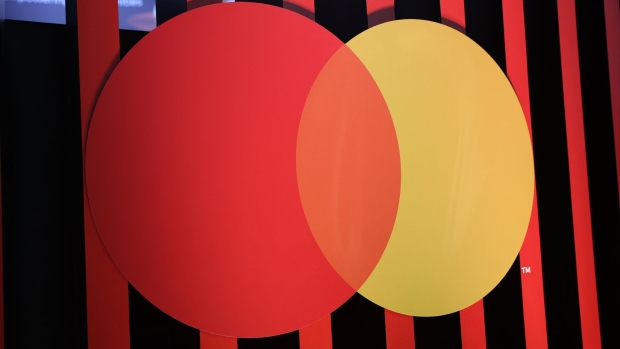Apr 5, 2023
Mastercard to Require Banks to Use Recycled Materials for Cards
, Bloomberg News

(Bloomberg) -- Mastercard Inc. wants the plastic in consumers’ wallets to do less damage to the environment.
Starting in 2028, the company will require all banks issuing one of its payment cards to use sustainable materials as it seeks to remove first–use, PVC plastics from its network, according to a statement Wednesday. Acceptable alternatives include recycled or bio-sourced plastics.
The move comes as experts increasingly worry about the toll the global addiction to plastic will take on worldwide efforts to limit greenhouse gas emissions. Plastic was responsible for 1.8 billion metric tons of greenhouse gas emissions in 2019, or 3.4% of the global total, more than the percentage contributed by the aviation sector.
“Mastercard is committed to advancing climate action and reducing waste by driving our business toward net zero emissions and leveraging our network and scale to accelerate the transition to a low-carbon, regenerative economy,” Ellen Jackowski, Mastercard’s chief sustainability officer, said in the statement.
It’s long been known that the plastic popularly used to make cards — polyvinyl chloride, or PVC — cannot be produced sustainably, and that it’s technologically challenging to recycle the material. So, in 2018, Mastercard inked a partnership with a bevy of card manufacturers to begin studying alternatives. At the time, company found that roughly 6 billion plastic payment cards were being made each year.
Three years on, Purchase, New York-based Mastercard introduced a badge that issuers could print on their cards to signify their products were made sustainably from “recyclable, recycled, bio-sourced, chlorine-free, degradable or ocean plastics,” the company said in 2021.
“We’ve been testing these cards under rigorous conditions,” Ajay Bhalla, Mastercard’s president of cyber and intelligence, said in an interview. “We have a machine, for example, which bends the cards hundreds of times to see how much they can withstand pressure.”
Material Transition
Since Mastercard introduced the optional program in 2018, more than 300 banks and other financial institutions have signed up, transitioning almost 170 million cards to recycled or bio-based materials.
Banks will have an option to choose recycled plastics that look and feel similar to the materials they currently use, Bhalla said. With its latest move, Mastercard will require all newly made cards to go through its certification process before a third-party auditor validates the changes.
“We’ve been trying hard for some time now,” Bhalla said. “We’re now taking the final step where we’re saying we want all our cards to be made of this new material.”
©2023 Bloomberg L.P.





